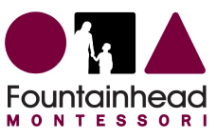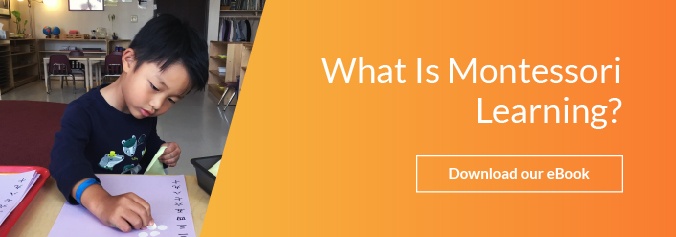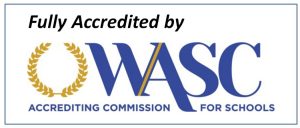Montessori school differs from conventional programs in several important ways. The entire philosophy on which Montessori programs are built is fundamentally different from traditional programs' educational philosophy. In a nutshell, Montessori school is focused on meeting the educational needs of the individual child while conventional schools are focused on ensuring that all children receive the same education. The foundational differences between the two types of programs show up in how the classroom is designed and how students are taught.
Child-centered environment
The Montessori classroom is a child-centered environment. Each element of the classroom is designed with the needs of students in mind. All the supplies and learning materials that students need access to are kept within easy reach. Each item in the classroom is carefully chosen to add to the learning of students. The classroom will not have decorative items that could be distracting or overstimulating for students. There are stations set up throughout the classroom that allows the students to move around and engage in hands-on learning. These elements differ from many conventional classrooms where you will find a more focused setup based on convenience and the teachers' needs in the school.
Mixed-age classrooms
In the Montessori classroom, the ages of the students will look different than what you will find in a conventional classroom. Typical programs group children together based on age and grade level. In a public school, all of the children in second grade will be either seven or eight. In Montessori school, however, the classrooms are mixed-age. You will find a range of ages in the typical Montessori classroom. The mixed-age environment helps children learn to interact appropriately with others who are not in their immediate age group and allows students to learn from one another.
Individualized learning plan
Conventional schools have a set lesson plan that is used for all students in a particular grade or program. In a classroom of twenty students, each one will receive the same worksheets, homework, and instruction on a subject. The purpose of this design is to ensure that every student gets the same education. Montessori Philosophy takes a different view of education. In Montessori school, each child is considered an individual with unique interests, skills, and learning needs. Because each student is unique, how each student learns is approached differently as well. The teacher in the Montessori classroom takes time to observe each student and creates an individualized learning plan based on those observations. This design ensures that each student has the opportunity to explore and reach his or her full potential in and outside of the classroom.
Self-directed learning
Another important difference between Montessori school and conventional programs is the amount of freedom students have in what they learn. In traditional programs, students have little to no voice when it comes to choosing what or how they learn. On the other hand, in Montessori school, students are provided with daily opportunities to engage in self-directed learning. The teacher provides learning opportunities to each student based on his or her interests and learning needs. The student is able to choose from the options provided by the teacher. Self-directed learning engages students more deeply and helps them develop a sense of personal responsibility when it comes to learning.
The differences between Montessori schools and conventional programs are vast. The best way to truly understand how these programs differ from one another is to schedule a time to observe a Montessori classroom. Seeing the students and teachers in action in the classroom will help you see the differences of the two programs for yourself.












Let us know what you think about this post
Put your Comment Below: